Who's the boss? Aru and Fuglsang lead the line for Astana at Tour de France
Dane signs new contract but Italian champion waiting until after Tour
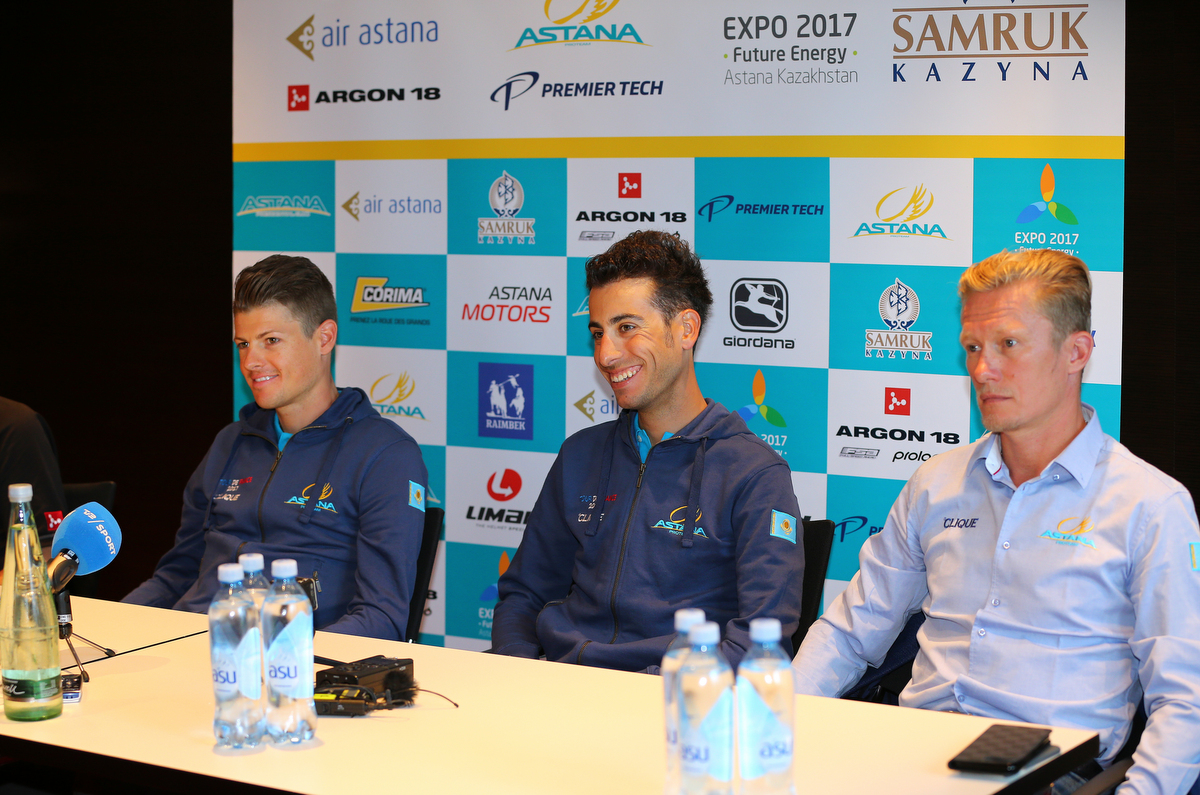
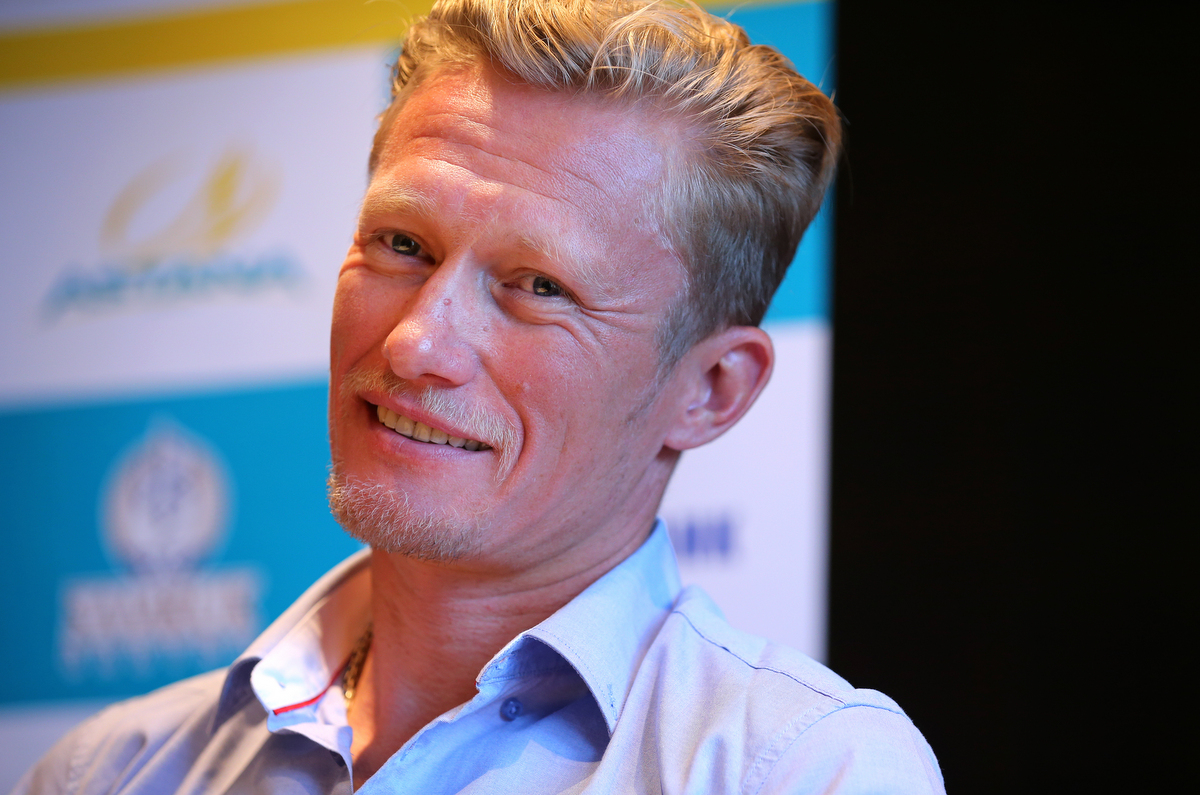
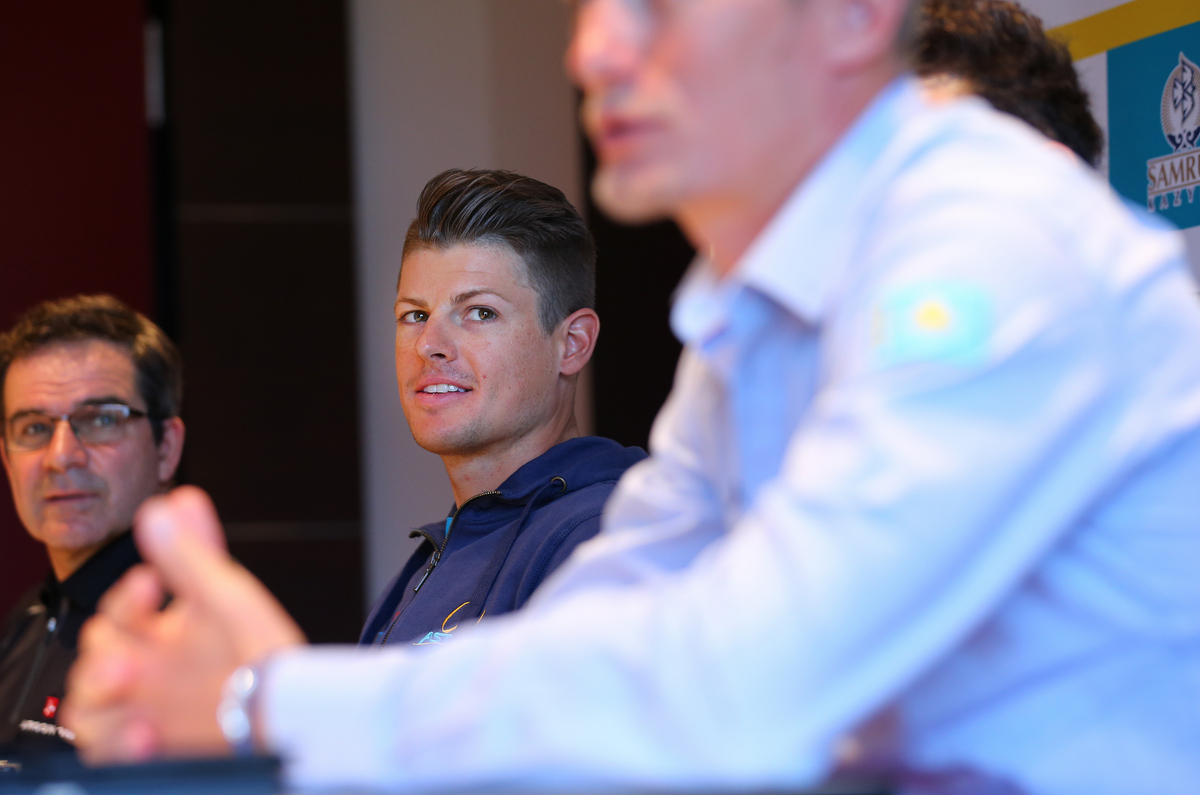
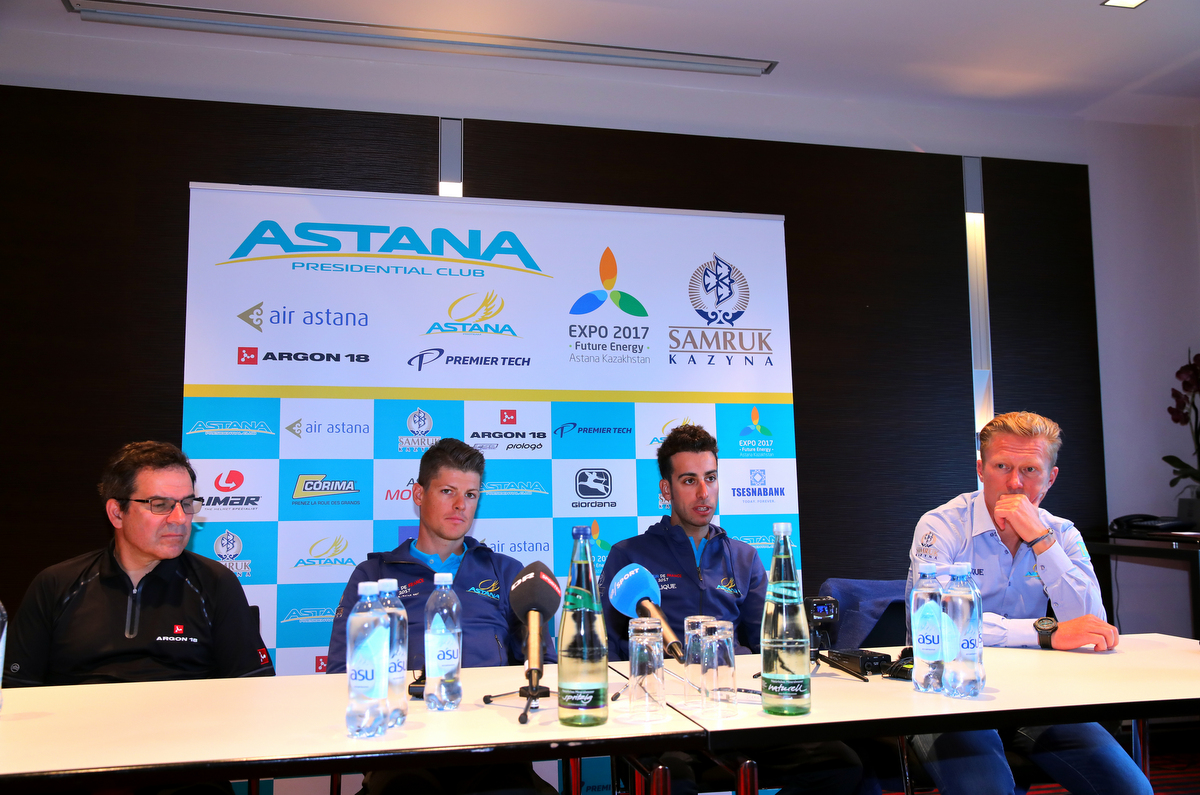
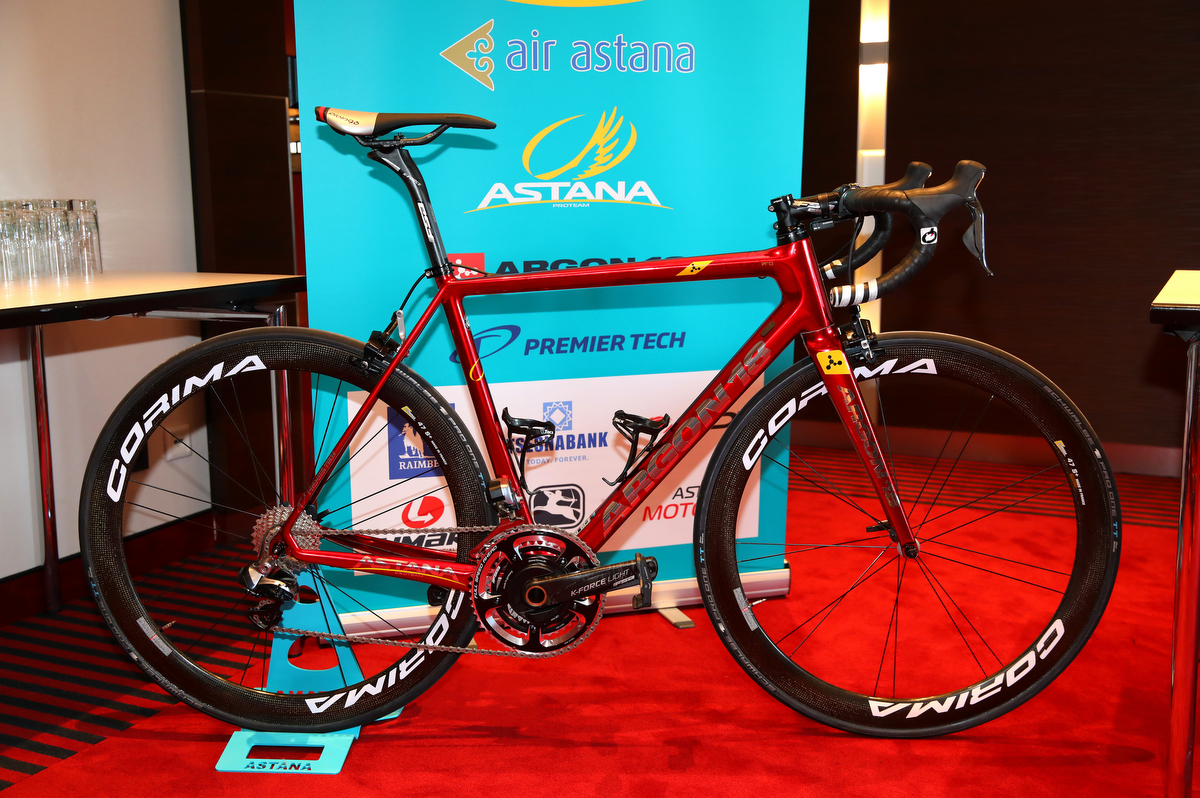
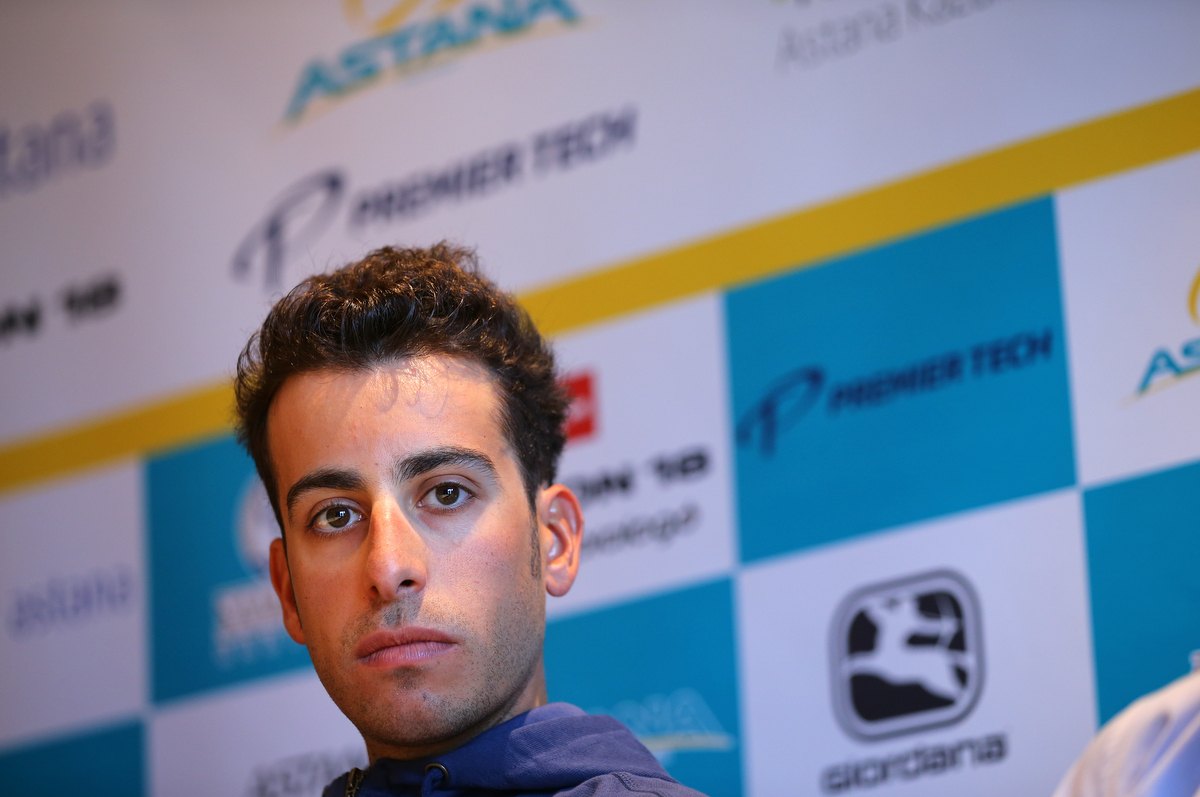
A tale of two leaders and two contracts for Astana at the Tour de France. While Jakob Fuglsang signed a two-year extension on Thursday afternoon, his stable-mate Fabio Aru has yet to agree terms with the squad for 2018. General manager Alexandre Vinokourov sat alongside the two riders as he announced the news ahead of a press conference at an airport hotel in Düsseldorf on Friday afternoon, his soft voice barely reaching to the front row.
"Yesterday, Jakob signed a contract for two more years with Astana," Vinokourov said. "We won't put pressure on Fabio before the Tour, we'll talk after the race, but we'd like him to stay with the team."
Aru's salary demands are understood to be the chief sticking point in his negotiations with Astana. Earlier this week, Il Corriere della Sera reported the Sardinian's asking price to be some €3 million per year, and noted that he had parted company with agents Alex and Johnny Carera this spring. "Fabio is a wonderful person, but our objectives are too far apart," Johnny Carera said.
The stakes on this Tour, then, are particularly high for Aru, who will hope a podium finish might persuade Astana – or others – to come closer to his own lofty valuation. The Sardinian seemed a rider on the ascent after winning the 2015 Vuelta a España and twice placing on the podium of the Giro d'Italia, but a disappointing 13th place on last year's Tour interrupted his hitherto smooth progression in the professional ranks. His startling solo victory at the Italian Championships last weekend, however, augurs well for his Tour this time out.
"Of course, the team doesn't have a budget like Sky, but Fabio is a rider we'd like to keep," Vinokourov said, dismissing the idea that he considered leaving Aru out of the Tour team due to the uncertainty over his future. "I think he can win this Tour de France, and we certainly weren't going to leave him at home like Coquard. We're here to try to win the Tour, and we'll take about the rest afterwards."
Fuglsang, meanwhile, had no misgivings about putting pen to paper on a new contract before the Tour began, and, for their part, Astana were keen to tie down the Dane after his impressive victory at the recent Critérium du Dauphiné.
"I've had four and a half good years on this team, so it was an easy decision to sign again," Fuglsang said. "For me it was a good moment to sign, and the contract is a good one for both parties. My future is clear now, and it's good to have it settled before the Tour."
Get The Leadout Newsletter
The latest race content, interviews, features, reviews and expert buying guides, direct to your inbox!
On the evidence of the Dauphiné, however, Fuglsang appears to be in the form of his life, and he is facing into his first opportunity to ride for the general classification at a Grand Tour since he placed seventh at the 2013 Tour. He grinned when it was put to him that the bottom line might have been rather higher had he held out for another three weeks. "Maybe, you never know," Fuglsang said. "If I win, I'll have to go back to Vino after the Tour…"
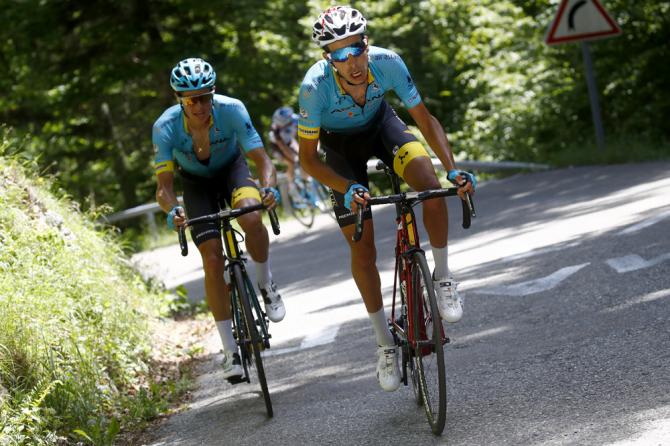
Two leaders
Following Vincenzo Nibali's departure for Bahrain-Merida, Fuglsang was designated as Astana's Tour leader at the very outset of the season, while Aru was earmarked to return to the Giro d'Italia after finishing a disappointing 13th on his Grande Boucle debut a year ago.
A training crash at Sierra Nevada in April ruled Aru out of the Giro with a knee injury – he was diagnosed with pre-patellar bursitis following examination in Milan – and forced a revision to his schedule, though Aru said it was not immediately certain that he would recover in time to line out at the Tour.
"I spoke to Vino after I was told I had to miss the Giro, and he said that I had to focus first of all on recovering 100 percent," Aru said. "Vino was a rider himself and he knows well how troublesome a knee injury can be if you don't take the time to sort it out properly at the beginning. So we didn't decide straightaway on going to the Tour. It was only after I had recovered and started training that we thought about it. And it was only once I knew I could return to racing at the Dauphiné that I was certain I would do the Tour."
Aru was a pugnacious presence at the Dauphiné, his first race since abandoning Tirreno-Adriatico through illness in March. After impressing on the steep Mont du Chat, where he combined well with Fuglsang, Aru went on to place fifth overall and mark himself out as a contender for the podium – or more – in July.
Before taking on Froome, Porte et al, however, Aru faces a leadership contest of sorts inside his own team. Although Vinokourov intimated that the road will ultimately decide the hierarchy at Astana, he insisted that there would be no friction between his co-leaders.
"Both leaders will be protected by the team, and we saw they rode very well together at the Dauphiné," Vinokourov said. "We'll go day by day, and we're not going to have an internal war like has happened on other teams in the past. There's a good ambience, and they're both captains."
On the evidence of the Dauphine, where the pair finished within a second of one another in the individual time trial, the working arrangement should survive beyond the opening 14-kilometre test in Dusseldorf on Saturday, where Aru identified Richie Porte as the favourite most likely to gain ground. "Honestly, I don't know how I'll fare myself because the Dauphine was the first time trial I'd done in almost a year," Aru said.

Barry Ryan was Head of Features at Cyclingnews. He has covered professional cycling since 2010, reporting from the Tour de France, Giro d’Italia and events from Argentina to Japan. His writing has appeared in The Independent, Procycling and Cycling Plus. He is the author of The Ascent: Sean Kelly, Stephen Roche and the Rise of Irish Cycling’s Golden Generation, published by Gill Books.